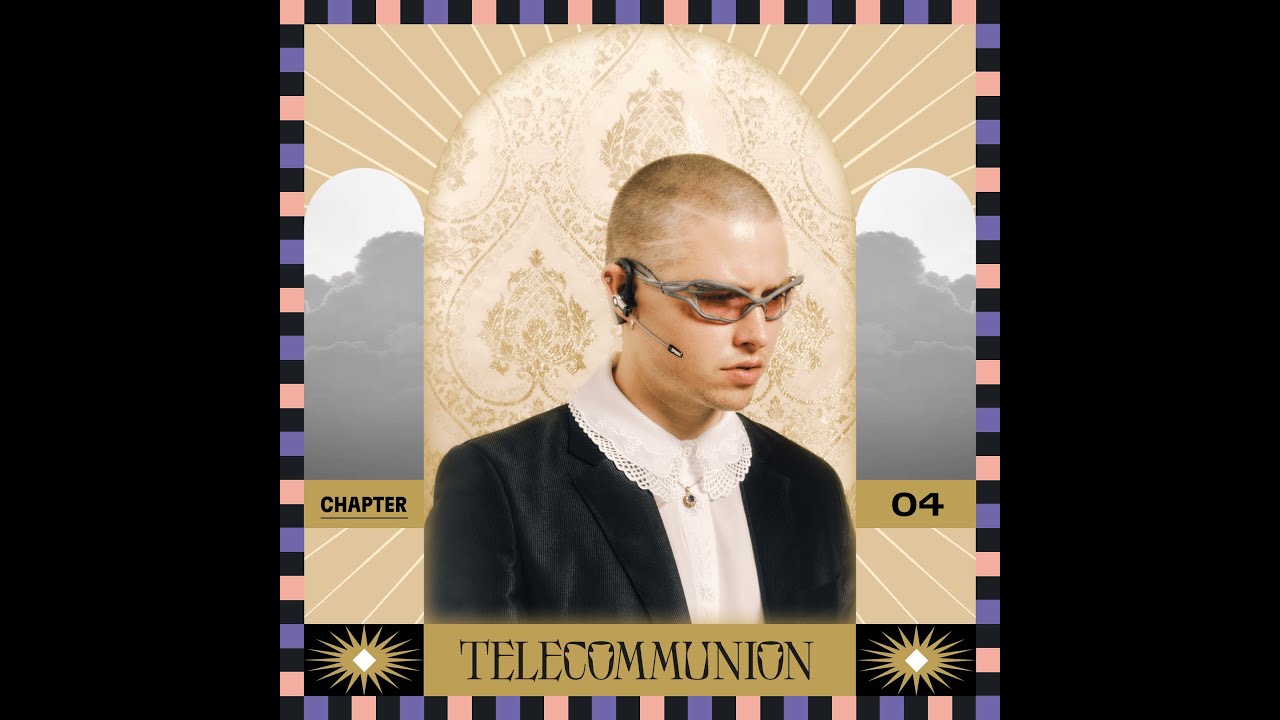Photos by Joe Hart
Holy Trinity Church in Dalston is also known as ‘The Clowns Church’ – every February since 1959, the country’s clowning community has gathered there to honour one of the profession’s most legendary figures Joseph Grimaldi, and other clowns who have passed away in the time since they last gathered. The vestry houses one half of the Clowns Gallery-Museum (the other is at Wookey Hole in Somerset) which includes the Clown’s Egg Register; in an effort to prevent plagiarism, since the 1940s every member of Clowns International has their unique stage make-up painted onto an egg which is displayed there.
It is also the base of the band Lunch Money Life. In short, a few years ago the band’s Spencer Martin cut a deal with the site’s sister church All Saints in Haggerston: he’d play organ for their services in return for a space to rehearse. After a robbery that saw the hard drive with their music on survive only by chance, they upped sticks to Holy Trinity, which has the added benefit of a lockable door. “The reverend here was a primo bodybuilder in Montserrat before he was found crying in the local church having visions,” he tells me as we amble around the space. On 18 November, they’ll use the adjoining Trinity Centre Hall for a night of music they’re calling The Infinite Well Of Pain.
tQ takes a seat with the band inside the building’s cavernous main hall; a passage from Ephesians (“One God and Father of all, who is above all, and through all, and in you all”) stretches around three of the walls in a formidable font. The small portable table around which Spencer, his brother Jack, and their bandmate Sean Keating share beer, crisps and dip feels ludicrously small in such a space, voices reverberating as we discuss the five piece group’s career thus far (absent are Luke Mills-Pettigrew and Stewart Hughes.) The elephant in the church is that shortly before we began speaking, news has broken that Queen Elizabeth II is close to death. We do our best to ignore it and focus on the interview until the Martins receive a message from their mother in the group chat reading “bye bye Queen!” Sean goes for a cigarette outside, and returns to report that a man on the street is wailing with grief.
None of us are royalists, but nevertheless it makes for an odd atmosphere, a swirling of different energies bouncing off the walls of this grandiose setting that mix together into a kind of giddy delirium. After receiving the news we plough ahead regardless with our original plan to listen to the latest mix of Lunch Money Life’s new single ‘Telecommunion’ (which incidentally is now premiering with tQ below), making our way into a small side room that the band have converted into a cluttered mini studio. It makes the perfect soundtrack, an opening of frazzled noise giving way into a lopsided squall of synths and drums. Momentous chimes of bells add gravitas. Heavily treated vocals add a touch of strange alien tenderness.
Most people who have written about Lunch Money Life bring up the unusual surroundings in which they’re based. There are obvious parallels to be drawn between the Clowns Church’s mixture of the ridiculous and the sublime, and the band’s music, an intense clutter of serious instrumental chops and an inherent inclination to silliness. They have a rule in the studio, says Sean, that if everyone’s laughing “we have to record it.” It is objectively impressive how the group can entirely change a song’s direction in a millisecond with a gravitational shift in momentum – often thanks to Stewart’s incendiary drumming. It is objectively preposterous when the direction they take, as on 2021’s ‘Nicolas Cage Please Get In Touch’, is towards a glossy stadium pop sound that could soundtrack an 80s direct-to-video action movie.
The band themselves, however, are reluctant to make too much of the links between the music they make and the environment in which they’re based. “I rarely find myself marvelling at this space,” says Jack. “It depends what kind of mood you wake up in, sometimes it’s just a room, today I feel like it’s pretty meaningful,” adds Spencer. You can find all sorts of religious allegory across their work, whether song titles like ‘God Complex’ and ‘Pharisees on their 2020 debut Immersion Chamber, or the angelic figures on the cover of this year’s Under The Mercies EP (a title which came from an overheard conversation between two church-goers), but they insist that it’s either subconscious or a coincidence.
They do concede that everything they have recorded since their debut album Immersion Chamber “has gone through the filter of this place,” as Spencer puts it, whether it was written, rehearsed or recorded here. Similarly their arrangement of his playing organ on Sundays “leads to a very fortunate amount of access to making music at our leisure.” The acoustics have shaped their work too – recent writing sessions in a friend’s living room resulted in a newfound sense of tightness compared to the echoey scope of the songs written here. Compare the trance-inducing psychedelic drift of early track ‘Superego’ (recorded in the church) with this year’s frantic and relentless ‘Jimmy J Sunset’ (recorded elsewhere) “We actually recorded a choir in here the other day,” says Jack. “That was banging, it felt like the first time we’ve properly let the church in.”
A lot of the music that they’re currently working on – their debut album is due next year – was in fact recorded at The Hideaway, a barn on the outskirts of Romford that has been converted into a studio by its owner Imogen Heap. As with the church, Lunch Money Life sang for their supper, working on the land in exchange for two weeks’ access. At one point, they were asked to fell a tree so that electronic duo Disclosure, who were recording there at the same time, could have some wood for their campfire. “We did invite them for a jam but they never came through the barn door,” laughs Spencer. “The cowards!” They did, however, secure “a sick night with them across the fire, comparing our successes.”

They’re more inclined to agree with the idea that humour is integral to the band than the idea that it taps into some kind of spiritual source. “I remember when I was about 18, listening to Tom Waits, trying to roll a cigarette and be serious about myself, I would get annoyed if he did something weird or humorous in a tune,” says Spencer. “It was only later that I appreciated humour as a tool to open the heart of the listener.” Aside from the barn, another set of records they’re building their new album around are based on a night where, intensely stoned, they decided to record a live soundtrack to cult 1998 vampire-action leatherfest Blade. In that, “there were a couple of slices of coherent music,” says Sean. Spencer disagrees. “That was the richest vein of bangers!” he declares. On their May EP Under The Mercies, lead single ‘Jimmy J. Sunset’ is named after the lawyer representing Nicolas Cage, who they claim issued the band with a cease and desist after the previous year’s ‘Nicolas Cage Please Get In Touch’.
Playfulness does not mean a lack of craftsmanship, however. The Cage saga is almost certainly untrue – though they claim that an ongoing court case prevents them from revealing the details – but as silly as it is, the way songs have begun to respond to one another across releases hints at the scale of their ambition. “We want to create a world musically,” says Sean. The vast majority of the group’s songs to date are either entirely instrumental, or contain vocals that have been manipulated to the point of unintelligibility. “It frees you up to create a story around the music that isn’t already there,” says Jack. “You couldn’t say a song like ‘Blowin’ In The Wind’ is a diss track about Nicolas Cage’s lawyer, but if you write a weird tune at 184bpm with just screeching over the top, of course you can say it’s a diss track about Nicolas Cage’s lawyer. There’s something about non-lyrical music that’s quite free.” Adds Spencer: “Obfuscation is a big part of what we do, we like leaving a fairly significant gap for the listener to do with the tune what they will.”
When the UK’s first coronavirus lockdown hit just two weeks before the release of their debut album, forcing them to reschedule their tour dates three separate times before scrapping them altogether, it was devastating. “Before lockdown we had a rare feeling that we were on a path, then that path splintered into a thousand different pieces, and by the time we came back to rehearsal and tried to hope back on the path we realised it had totally disappeared,” Spencer says. To recapture the momentum, they embarked on a period of intense creative experimentation, ripping up their entire process in sessions they dubbed ‘Anti-Lunch’.
At those sessions it didn’t matter who was free to rehearse and who wasn’t. “If it was just bass guitar and synth, we’d work with that,” says Jack. When they were all together they swapped instruments and implemented arbitrary rules like banning kick drums. “I had been depressed,” says Spencer, “partially because in my own small world the pandemic had killed the band and I was angry about that. The sessions became such a fun, ridiculous way of creating without any of that baggage.” It reminded him, he says, “that whenever we get in the same room, I feel like I have all the world at my feet and I wanna reach for it all. Anything could happen, it’s the most extreme form of excitement that I’ve come across, and it’s shared with my best friends. You just feel like it’s all there to be had!”

Adds Sean, “we’re at a point now where there’s enough non-musical stuff in our lives that’s frustrating or depressing that playing together itself is enough of a reward to not want to pack it in.” Post-pandemic, “you kind of feel like you’re setting yourself up for disappointment if you set any long-term goals,” he says. Adds Jack, “your aim could be ‘I want to play Glastonbury, but then Glastonbury might be underwater by 2030.” That said, they’re united in their desire for maximum longevity. “We just never want it to stop,” says Spencer.
As things stand, Lunch Money Life have not just recovered their momentum; they are totally incendiary. There is no other group embracing so many conflicting energies – serious and silly, simple and complex, conscious and subconscious – and emerging with a sound so unique. For all of its contrasts, however, theirs is a process that “is never mathematical, purely instinctual,” as Spencer puts it. A sound that reaches deep with a unity of purpose. At one point during the Anti-Lunch sessions, he continues, he had a revelation befitting their sacred surroundings. “Our music is always about way it’s gonna make people feel. Our only aim is to reach all the way to the soul.”
Lunch Money Life’s new single ‘Telecommunion’ is out now. The band headline their own night ‘The Infinite Well Of Pain’ at Trinity Centre Dalston, which will also feature Nourished By Time and Nwakke. Click here for tickets and full information




